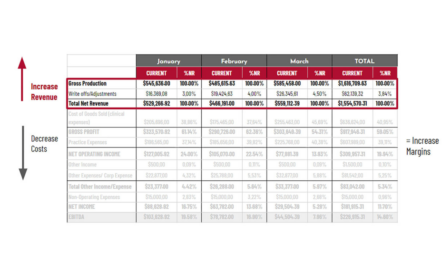A disciplined leader has the ability to resist distracting impulses, maintain focus and see projects through to the end.
By Emmet Scott, Partner, DEO
What does discipline look like to you? Many might assume that discipline is the negative consequences that come with a misguided choice or mistake, but it can also refer to the operating standards put in place by leadership. A disciplined leader has the ability to resist distracting impulses, maintain focus and see projects through to the end.
This topic is a personal one for me. Recently, after 25 years of being overweight, I discovered how powerful discipline is in all aspects of my life. After a failing grade in my health and mental discipline, I joined a group of like-minded fathers with the goal of transforming my mindset and my body. Through this new mindset and a more disciplined approach to my schedule, I lost weight, gained muscle, and even completed my first half marathon.
Effective leadership requires discipline. It will improve your daily processes, increase productivity, and facilitate better communication with your staff. Discipline is an often misunderstood, yet powerful tool that leaders can use to set the standard for your organization, while holding your employees accountable for what needs to be done.
What is discipline?
By providing discipline, you set a standard that when the motivation sinks and things get hard, your team is still going to do the tasks needed to be successful. One of the best ways that leaders can show discipline is by being organized and systemized. One of the principles I teach is the IDOPE principle, which refers to this process:
- Idea
- Document
- Organize
- Prioritize
- Execute
When leaders get too caught up in the “visionary” aspect, they become more of a scattered leader than one that provides focus towards a mission. Discipline needs that organizational component. Leadership is so critical right now because there are so many people that are sitting on a lot of mental exhaustion – individuals can only take on so much.
Communication is fast and random these days because of all the technology we use, making the brain the bottleneck for productivity. It’s no longer, “Could I do that?” We now must ask, “Do I have the mental capacity anymore to do that?” As leaders, if we aren’t disciplined people, we come across as tone-deaf and not empathetic to the realities of what people are dealing with every day.
Disciplined leaders use project management
As a leader, you need to develop to a point where the activities you’re doing are the ones that are most supportive to your team and what they are trying to execute. This requires transparency about your calendar and the processes you have put in place for your team. It’s important to check in with your team to ensure that they are receiving the support they need, where they need it.
Disciplined leaders have very clear project management processes. I will often hear leaders say, “We have been talking about this for a long time, why hasn’t it gotten done?” I always want to respond, “Because talking is not the same thing as getting something done.” Project management processes will give you very clear tasks and a breakdown of ideas that will help your team to execute those tasks and ideas.
A lot of entrepreneurs start off as dopamine addicts that are excited to solve problems in the marketplace. When they achieve that by helping a customer, they experience an enormous amount of euphoria. Most of what they are doing is selling and making promises before the real work happens. We usually just see these opportunities to help, and we provide help, but we are not usually sensitive to the operational components that need to take place.
Disciplined leaders time block
The one thing that entrepreneurs have not been able to create is more time, even if they are great at creating communication products and various technologies. ChatGPT is getting a ton of leverage by using A.I., but we are still limited by the amount of time that we have.
The most critical thing for entrepreneurs to learn about their usage of time is learning when to step back now that they have so many opportunities. This risk with time management is that we have a digestion problem, not a starvation problem. We consume too much and there aren’t enough nutrients in what we are consuming.
When you look at someone’s calendar, you can tell a lot about what a person is focused on and where their energy is at. Time blocking is critical to entrepreneurs – by blocking off your time, you can ensure that your time is spent on the things that are most critical for you and your business. Time blocking is a discipline that will greatly leverage and accelerate your success.
Habits of disciplined leaders
One of the biggest components of discipline is forming winning habits that encourage hard work from your team and fosters success for your organization. Here are some habits of disciplined leaders:
1. They are intense about how they spend their time – Time is an invaluable, nonrenewable resource. Time management and time blocking are critical practices for disciplined leaders, because they are so intense about how their time is spent.
2. They are thoughtful about the ideas that they share – Part of what sets disciplined leaders apart from non-disciplined leaders is the amount of thought put into the ideas that they share with their teams. Disciplined leaders have spent a great deal of time developing ideas about how to grow their business, making sure that no stone is uncovered.
3. They use some sort of project management platform – Essentially, this comes down to organization. Using a project management platform ensures that your team is kept up to date on the workflow and tasks they are assigned each day, reducing confusion and streamlining your processes.
4. They take a lot of input from the team on what works and what doesn’t – As important as it is for disciplined leaders to share their ideas with the team, it’s equally important to listen to the team about what works and what doesn’t in the workflow. Disciplined leaders are invested in business outcomes, and business outcomes depend on the processes and standards your team uses every day.






